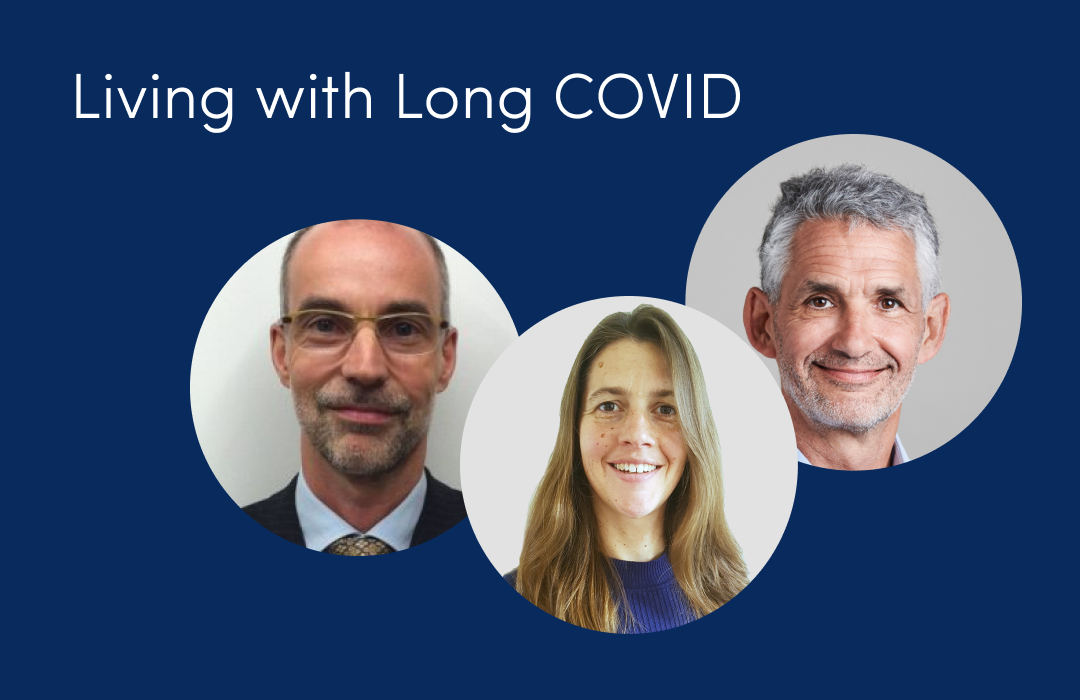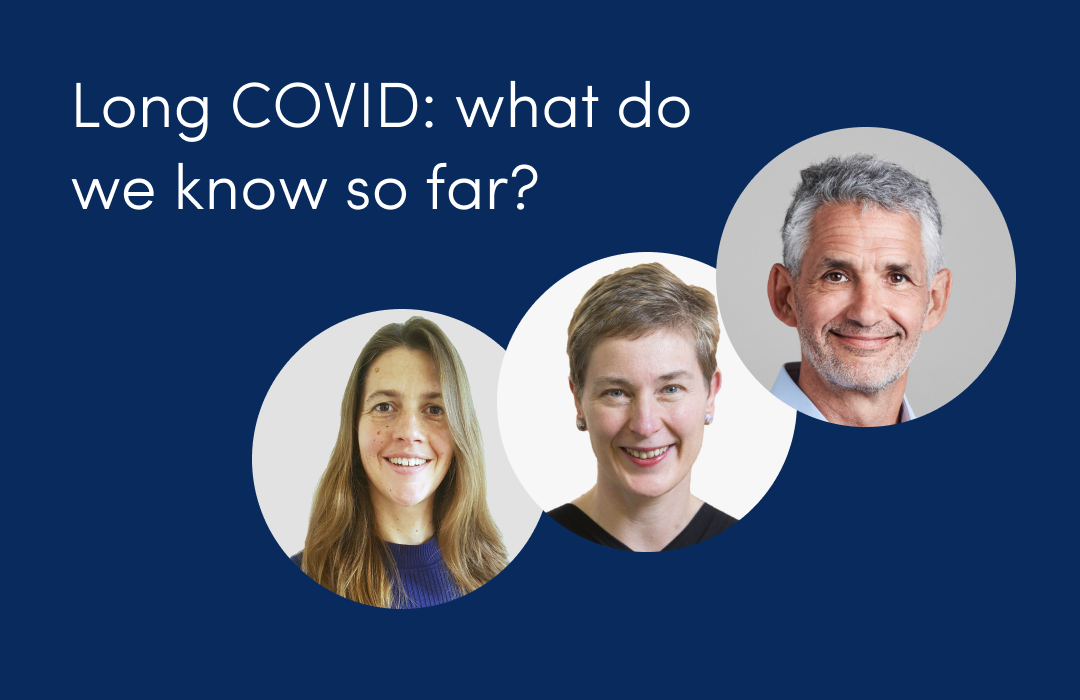
When will I get a COVID-19 vaccine and what will it feel like? Here’s how the UK vaccination programme will work
December 11, 2020

This article has not been updated recently
The national UK COVID-19 vaccination programme began on Tuesday, providing a glimmer of hope that the pandemic may soon be drawing to a close.
But many of us still have questions about these new vaccines and how things will work over the months ahead.
For our latest webinar, Professor Tim Spector, ZOE COVID Symptom Study lead, was joined by Kate Bingham, Chair of the UK Vaccine Taskforce, Dr Anna Goodman, Infectious Diseases Consultant at Guy's and St Thomas' Hospital in London, and Dr Macey Murray, a research fellow at the MRC Clinical Trials Unit at University College London to answer your questions about how the vaccination programme will unfold over the coming year.
How the most extensive vaccination programme in UK history will unfold
The only vaccine that is currently approved for use in the UK is the Pfizer/BioNTech mRNA vaccine, which the NHS is now distributing across the country.
Several more vaccines have been submitted for approval by the Medicines & Healthcare products Regulatory Agency (MHRA) over the coming months, including Moderna’s mRNA vaccine and the AstraZeneca/Oxford University viral-based vaccine.
Once vaccine trials are completed, the companies behind them submit data to MHRA for approval. The Joint Committee on Vaccination and Immunisation (JCVI) then reviews the available data and advises the government on who should be receiving the vaccine and which groups need to be prioritised.
Understandably, many of us want to know when we might be offered a vaccine, and which one it will be. The answer depends on how the vaccines are prioritised and the logistics of vaccine delivery.
"There is extreme concern to make sure that people who are most at risk are prioritised for vaccination," says Kate.
Right now, the vaccination program is prioritising the elderly, care and NHS staff, aiming to reduce the number of deaths from the virus and the strain on the NHS, but this will change as time goes on.
"The prioritisation will be re-evaluated as we see the results and how the number of cases changes in the population," Tim adds.
If you’re not in one of the highest priority groups, you may not be offered a vaccine until Spring 2021 at the earliest.
Even if several vaccines have been approved by then, you’re unlikely to be offered a choice. Instead, the one you get will depend on those that are available at that time. But does it matter?
"Any licensed vaccine is safe and effective," says Anna. "So if you’re offered one, please accept."
Making sure under-represented groups aren't left behind
Some groups have been disproportionately affected by the COVID-19 pandemic, with the elderly and people from Black, Asian and ethnic minority groups at much higher risk compared with the general population.
Making sure that the vaccine works for everyone, particularly those who are at increased risk from the virus, has been a vital part of the process.
"The Pfizer/BioNTech trial results clearly show that they've made sure to cover a broad population,” says Macey. “They've included people from risk groups including the Black, Asian and minority ethnic groups, and a large proportion of older people to make sure that the vaccines are safe and efficacious in these groups,"
Is the COVID-19 vaccine safe for everyone?
There have also been concerns about whether the vaccine will work for people who have suppressed immune systems.
"These patients were primarily not recruited into the vaccine trials, except for people with stable HIV, who were recruited into the Pfizer trial," says Anna.
She says that although we don't yet know its specific efficacy in people with compromised immune systems, we do know that the vaccine is safe in these groups. So people in immunosuppressed populations can accept the vaccine if it is offered to them, but you should talk to your doctor if you’re worried.
However, there are a few groups of people who should be cautious of taking the vaccine at this time. After two NHS staff had allergic reactions to the Pfizer vaccine, people with severe allergies are now being advised to consult their doctor before having the jab.
Pregnant and breastfeeding women are also advised to avoid the vaccine as a precaution. Reassuringly, Anna says, “It’s not that there is a risk, it’s just that the vaccine hasn’t yet been licensed for use in pregnant women. But if you’ve had a vaccine and you happened to be pregnant, please don’t worry about it.”
What will getting a COVID-19 vaccine feel like? What are the potential side effects?
"When people get the vaccine, just like when you get any vaccine, you can expect that it's going to be painful at the site where you have had the injection," says Anna "You can also expect that you might have a mild headache and you might be tired for a day or so."
These side effects are mild and short lived. If you develop any more severe problems after receiving the vaccine, you should contact your doctor.
Some people have been concerned about a lack of long-term safety data for the vaccines because they are so new.
"95% of all potential serious side effects happen within the first four weeks of the second dose," says Kate. "Both Pfizer and Oxford have now got substantially more than two months monitoring after the second dose, so we do have good data on safety."
Help us to monitor the health effects and impact of COVID-19 vaccination
You can play your part in contributing to the safety data by downloading the ZOE COVID Symptom Study app and taking just a minute every day to log your health and any side effects after you have received your vaccine.
"We are launching a vaccine side effect feature so that people who have these vaccines will be able to log their short term symptoms as well as any long term problems," says Tim. He highlights that this will help provide rapid, real-time data about vaccine side effects in the general population.
Because many people in the first wave of vaccinations are older and may not use a smartphone, you can also create a profile for elderly relatives and log health reports on their behalf.
We need as many people as possible to download and use the ZOE COVID Symptom Study app as vaccines roll out across the UK so we can monitor their impact and help bring the pandemic to an end.
Find out more:
- The UK Government's Vaccine Taskforce: strategy for protecting the UK and the world - The Lancet
- COVID-19 vaccine UK: Everything you need to know about the new coronavirus jabs - Science Focus
- Priority groups for coronavirus (COVID-19) vaccination: advice from the JCVI, 2 December 2020 - GOV.UK
- UK medicines regulator gives approval for first UK COVID-19 vaccine - GOV.UK
- Covid-19 vaccine: First person receives Pfizer jab in UK - BBC News
- Covid-19 vaccine: Allergy warning over new jab - BBC News












.png)


.jpg)














.png)







%202.png)
.png)


















.png)






